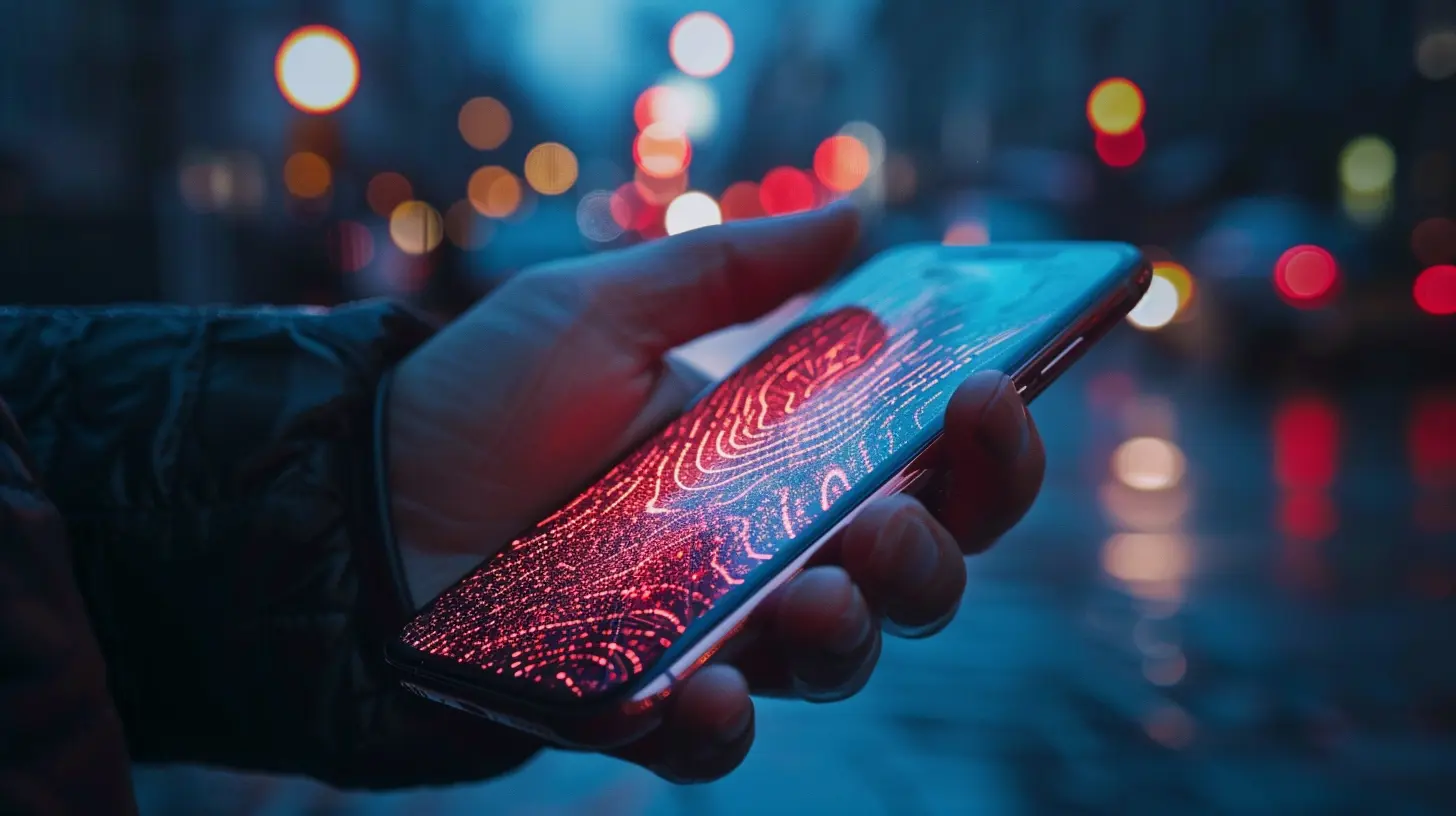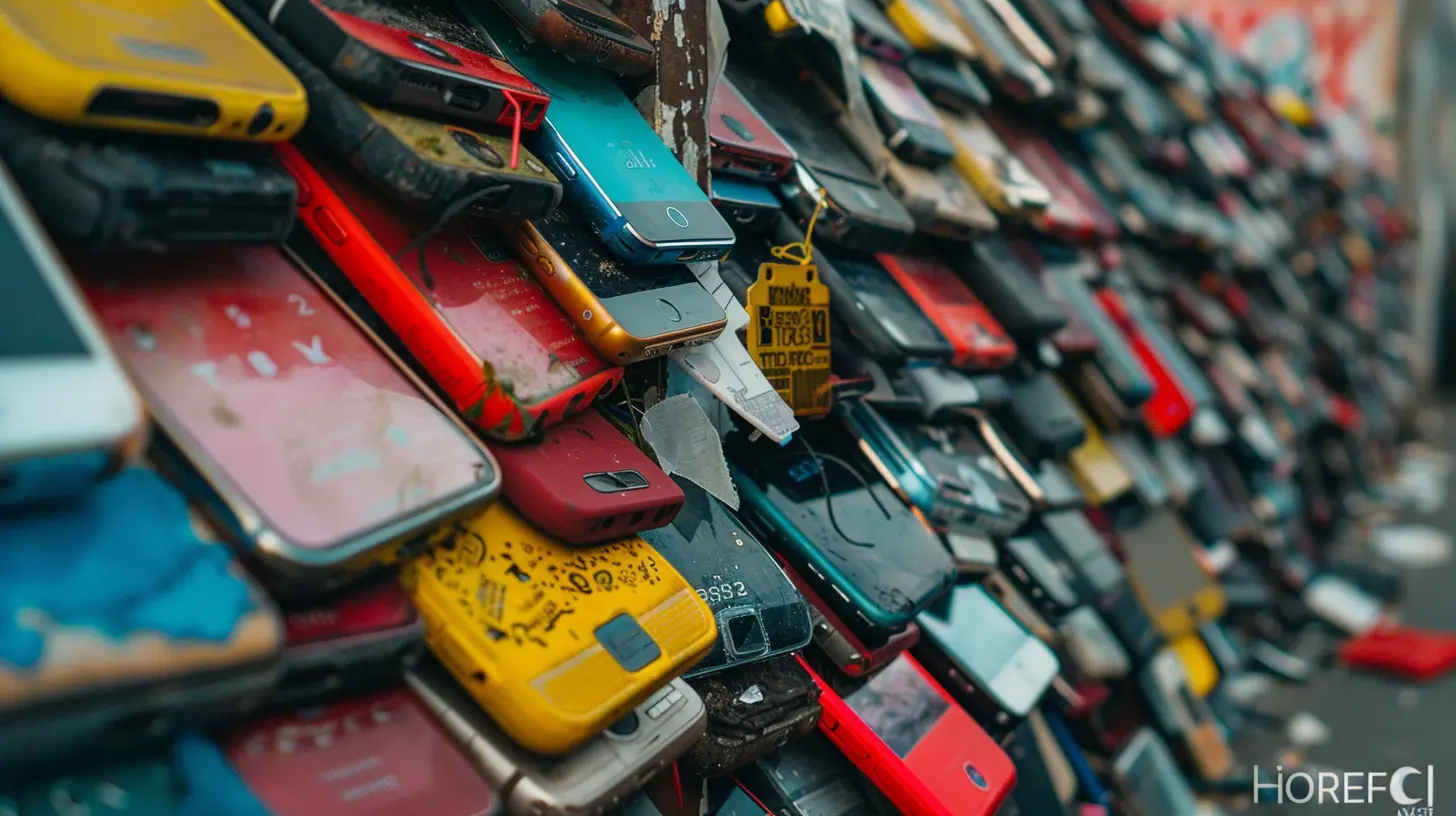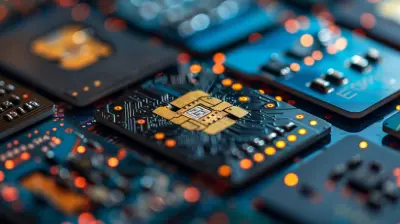26 April 2025
The way we prove who we are has come a long way. From handwritten signatures to plastic ID cards, we've always found ways to verify our identity. But let's be honest—who enjoys carrying around a wallet stuffed with IDs, credit cards, and other personal documents?
Enter smartphones—the sleek pocket-sized marvels that already run our lives. Whether it's accessing bank accounts, unlocking doors, or even boarding flights, smartphones are quickly becoming the ultimate key to our digital identity. But how exactly do they shape the future of personal identification? Let's dive in.

The Shift From Physical to Digital Identity
Remember when you had to carry tons of paperwork to prove your identity? Yeah, those days are fading fast. Governments and businesses are moving towards digital identity systems, making it easier (and safer) for individuals to verify who they are.Smartphones are at the center of this shift. Thanks to biometric authentication, encrypted storage, and secure online verification, our phones are replacing traditional identification methods with seamless digital solutions.

Smartphones: The Ultimate Identity Vault
Think about it—your smartphone already functions as an extension of yourself. From face unlock to fingerprint scanning, your device knows you better than you think. Here’s why smartphones are the perfect gateway to digital identity:1. Biometric Security is Foolproof
Unlike passwords that can be forgotten or stolen, biometrics—like fingerprints and facial recognition—make securing your identity incredibly simple. Smartphones are equipped with advanced biometric sensors that ensure only you can access your personal data.2. Secure Digital Wallets
Ever used Apple Wallet or Google Pay? These digital wallets don’t just store credit cards anymore. They now hold driver’s licenses, boarding passes, student IDs, and even COVID-19 vaccination records. Imagine a world where your entire identity fits inside a secure app on your phone.3. Two-Factor Authentication (2FA) Made Easy
Gone are the days of copying OTPs from texts. With authenticator apps and push notifications, smartphones have simplified two-factor authentication, adding an extra layer of security to logins without unnecessary hassle.
The Role of Smartphones in Government-Issued Digital IDs
Governments around the world are embracing digital identity programs, and guess what? Smartphones are at the heart of it all. Countries like Estonia, India, and the UAE have started issuing digital IDs accessible via mobile apps.Having a government-issued digital ID on your phone means you can verify your identity anywhere, anytime—whether for online banking, tax filing, or even voting (yes, mobile voting could be a thing soon!).

Digital Identity and the Convenience Factor
Let's be real—nobody likes carrying around multiple IDs or digging through files for paperwork. Smartphones eliminate that hassle. Need to verify your age at a bar? Your smartphone has your digital driver’s license. Boarding a plane? Your phone has your digital passport.Everything you need is just a tap away, making life incredibly convenient.
The Privacy & Security Concern (And Why Smartphones Handle It Well)
Of course, with great convenience comes great concern. How safe is your digital identity when stored on a smartphone? Won’t hackers wreak havoc if they get their hands on your phone?Thankfully, mobile security has improved tremendously:
- End-to-End Encryption: Services like Apple’s Secure Enclave and Google’s Titan Security ensure that your private data stays private.
- Decentralized Identity Systems: New models are emerging where you control your digital identity without relying on big companies.
- Remote Wipe Features: Lost your phone? You can erase all data remotely and restore it when you get a new device.
Digital Identity in a Cashless Society
As we move towards a cashless society, digital identity plays a crucial role. Whether it’s mobile banking, contactless payments, or crypto wallets, smartphones act as the center of all financial transactions.Forget wallets and coins—your smartphone is all you need to make purchases, withdraw cash, or invest in digital assets securely.
The Future: What’s Next for Smartphones and Digital Identity?
We’re just scratching the surface. In the future, smartphones could completely replace passports, driver’s licenses, and even traditional home keys. Advancements in blockchain, AI, and decentralized identity solutions will make identity management even more secure and seamless.Imagine scanning your phone to cross borders, access medical records, or even vote in elections—all without physical documents. The potential is limitless.
Final Thoughts
Smartphones aren’t just for texting and social media—they’re shaping the future of digital identity. With strong security measures, government adoption, and growing convenience, our mobile devices are becoming the ultimate identity vault.As we move into a world where digital identity is the norm, one thing is clear—your smartphone isn’t just a gadget. It’s your key to the future.


